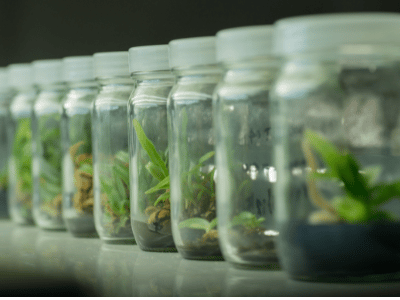From the prescription of the examination to the delivery of a sample to the laboratory, which allows a reliable and repeatable result to be obtained, the pre-analytical phase is probably one of the most central, at the heart of all the interfaces of processes and actors at work inside and outside the laboratory.
Let us list them to try to illustrate the stakes and to better understand how each one, in his place, can better contribute to the success and the quality of this link of the human health chain to which we are so much committed.
The patient: the reason to be for all processes in the pre-analytical phase and interactions in the laboratory
Prescription adapted to the clinic, in the respect of an irreproachable ethics, quality of the well identified sampling in perfect hygiene conditions and in an adapted comfort, guarantee of confidentiality of the practised examinations, and security of their traceability, realization of the acts with the adapted consumables, validated, analysis on well maintained instruments, well controlled from the metrological point of view, on correctly transported and technically adequate samples in pretreatment: all that takes place in and for the laboratory and is made to serve the diagnosis which will allow to improve the patient’s health.
Prescriber, sampler, distributor and manufacturer of materials and consumables, biologist, technician: a chain of events around the patient for a perfect pre-analytical phase.
The prescriber: ensuring compliance of the medical prescription and ethics.
The prescriber must provide a prescription that allows for the unique and unequivocal identification of the patient. This prescription must be dated and signed, and the physician’s contact information and registration with the Order must be included.
The prescription must indicate a list of tests that the physician must ensure are available in the laboratory to which he/she is referring (by verifying, particularly in the hospital setting, that all tests are available even when on call).
All the clinical information necessary for a perfect understanding and control of the factors that can disturb a test result must be included in the prescription.
To meet ethical requirements, the prescribing physician must ensure that he or she does not forget that sometimes an attestation of consultation and consent for an examination of a person’s genetic characteristics ( Decree No. 2008- 321 of April 4, 2008 – Decree of May 27, 2013) is essential to obtain the patient’s consent. This is particularly the case for mutation research or cytogenetic studies.
Finally, in the interest of eco-responsibility, the physician will ensure that only necessary examinations are prescribed. In these times of scarcity, transportation difficulties, scarce and expensive energy and a damaged planet, every move counts!
The sample collection technician: many crucial issues in the service of patient comfort and sample quality
We have already mentioned on laviedulabo.fr the role of the sampling technician in the pre-analytical phase.
Each element of the procedure is important: taking the right amount of sample, with the right gesture, having taken into account the clinical information transmitted, and preparing the patient well, in impeccable hygiene conditions, in complete confidentiality and ensuring the perfect traceability of the sample with systematic labeling.
A few minutes of sampling are so valuable!
The manufacturer and distributor of laboratory equipment and supplies: the right material, in the right quantities, when needed, to succeed in this step
Your manufacturer and distributor partner is the third stakeholder in a successful pre-analytical process. Indeed, on the conformity and the width of assortment of his offer depends the perfect adequacy between what you need to take, to transport, to technically validate the samples. Its ability to provide you with modern consumables and equipment that incorporate the latest technological advances is also important. In these times, more than ever, the success of the pre-analytical phase relies on the ability to advise you on acceptable alternatives to overcome supply disruptions related to IVDR, disruptions in global trade, and the shortage of plastic materials at the heart of the IVD plastic industry.
Finally, a partner capable of satisfying all your requirements (hygiene, safety, environment, consumables, layout, furnishings and laboratory equipment) who will also be able, in the long term, to keep your tools and instruments alive by providing after-sales service and metrology, provides you with essential assistance in the pre-analytical phase. By being able to accompany you in improving the performance of complete processes, the manufacturer and distributor is a key asset in these interactions.
The biologist: the keystone of the pre-analytical phase
85% of errors detected in the execution of a medical diagnosis occur in the pre-analytical phase [WIWANITKIT] . The biologist, who guarantees the reliability of the results, is therefore the key player in this phase, where he/she controls the procedures linking the sample to the patient, the transport of samples, and supervises all the processes and procedures.
In addition, the biologist may perform certain analyses in addition to the prescription in order to clarify a diagnosis, which he or she enriches through dialogue with the prescribing physician.
The technician: key contributor for a reliable and repeatable result
The expertise of the laboratory technician contributes to the pre-treatment, handling and transportation of samples in compliance with written procedures. As a resource person, he is a strategic interface in the pre-analytical phase.
Five interfaces and many challenges: the patient is really at the heart of a complete system for the quality of his diagnosis. By facilitating exchanges, by reinforcing the attention of each stakeholder to the issues of the other, we have the means to reduce non-conformities related to the pre-analytical phase!




